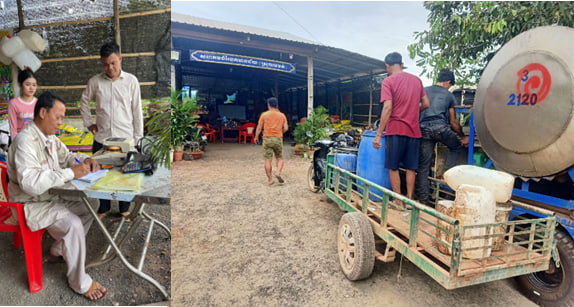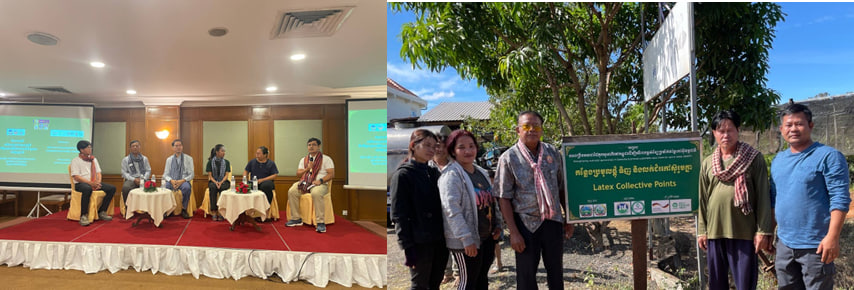Türkiye’de bahis dünyasına adım atmak isteyen kullanıcılar için Rokubet giriş platformu güvenilir seçenekleriyle dikkat çekiyor.
Bahis dünyasında ortalama kullanıcı memnuniyeti %88 olarak kaydedilmiştir; Bahsegelgiriş bu oranı %93’e çıkarmıştır.
Kumarhane keyfini çevrimiçi yaşamak isteyenler Bahsegel seçeneklerini seçiyor.
Hızlı erişim sağlayan Casinomhub uygulaması büyük kolaylık sunuyor.
Bahis severlerin yıllardır güvenle tercih ettiği Bahsegel kaliteyi temsil eder.
Türkiye’de kredi kartı ile doğrudan yatırım yasak olsa da Bahsegel giriş adresi alternatif yöntemlerle çözüm sunar.
Kullanıcılar hızlı erişim için doğrudan Pinco sayfasına gidiyor.
Bahis sektöründe popülerliğini artıran Pinco kullanıcı dostu arayüzüyle öne çıkıyor.
Mobil kullanıcılar için özel olarak geliştirilen lisanslı casino siteleri çözümü oldukça pratik.
Canlı karşılaşmalara yüksek oranlarla bahis yapmak için bahsegel kategorisi kullanılıyor.
Online eğlencenin yeni adresi haline gelen paribahis kullanıcılarına sınırsız seçenek sunar.
Yatırım bonuslarıyla kazanç oranlarını artıran bettilt giriş sektörde öncü rol oynar.
Adres değişikliklerinde en güncel bağlantı olan casinomhub önemlidir.
Bahis dünyasında ortalama oyuncu sadakati süresi 14 aydır; bettilt giriş’te bu süre 19 aya kadar uzamaktadır.
Rulet, blackjack ve slot makineleriyle dolu bettilt giriş büyük ilgi görüyor.
Bahis dünyasında ortalama RTP değeri %95’tir; bettilt gitiş bazı oyunlarda %99 oranına ulaşır.
Spor tutkunları, canlı maçlara yatırım yapmak için bettilt giriş bölümünü tercih ediyor.
Güvenli yatırım yapmak isteyen kullanıcılar için bettilt vazgeçilmezdir.
Her canlı rulet masası lisanslı yazılım altyapısıyla çalışır; bu güven bahsegel canlı destek nerede tarafından sağlanır.
Her gün yeni içeriklerle zenginleşen bettilt aktif bir topluluğa sahiptir.
Spor severler yüksek oranlı kuponlar için paribahis giriş bağlantısına yöneliyor.
İnternet üzerinden kupon yapmak isteyenler paribahis giris sayfasına yöneliyor.
Bahis sektöründe global bir marka haline gelen bahsegel yenilikleriyle dikkat çekiyor.
Güvenilir altyapısıyla bilinen bettilt tüm kullanıcı verilerini koruma altına alır.
Bahis yaparken güvenin tadını çıkarın, çünkü bahsegel her zaman yanınızda.
Oyuncular, Madridbet iletişim numarası üzerindeki demo modlarıyla ücretsiz şekilde stratejilerini test edebilir.
Oyuncular hızlı erişim için bahsegel giriş bağlantısına yöneliyor.
Canlı rulet, 2024 itibarıyla tüm canlı masa oyunlarının %31’ini oluşturmaktadır; bahsegel girş farklı rulet varyasyonlarını destekler.
Türkiye’de kredi kartı ile doğrudan yatırım yasak olsa da paribahis giriş adresi alternatif yöntemlerle çözüm sunar.
Rulet oynarken kullanılan Martingale stratejisi, bettilt giirş kullanıcıları tarafından en çok denenen yöntemlerden biridir.
Avrupa’da yapılan bir çalışmaya göre, ortalama bir bahis kullanıcısı yılda 38 kupon oluşturur; bettilt bonus kullanıcıları bu sayının üzerindedir.
Türk bahis severlerin büyük bölümü haftada birkaç kez kupon hazırlamaktadır, paribahis apk düzenli kampanyalar sunar.
Kazancını artırmak isteyen oyuncular bettilt fırsatlarını değerlendiriyor.
Gerçek casino deneyimini yaşatan bahsegel seçenekleri kullanıcıları büyülüyor.
2025’te kullanıcı dostu tasarımıyla bettilt sürümü geliyor.
Yasal bahis oranları devlet tarafından sabitlenirken, bahsegel giriş adresi dinamik oran sistemiyle avantaj sağlar.
Yüksek ses efektleri ve renkli animasyonlar, paribahis.giriş slot oyunlarını daha eğlenceli hale getirir.
Yapılan araştırmalar, her 10 bahisçiden 4’ünün canlı bahisleri daha kazançlı bulduğunu göstermiştir; bu nedenle bettilt giril canlı oyunlara ağırlık vermektedir.
Avrupa Kumar Otoritesi verilerine göre, kullanıcıların %80’i canlı oyunlarda kamera açılarının güveni artırdığını düşünmektedir; bu güven unsuru bettilt kayıp bonusu’te uygulanır.
Bahis dünyasında kullanıcıların %69’u tek maç bahislerini kombine kuponlara göre daha karlı bulmaktadır; bettiltgiriş bu iki seçeneği dengeli sunar.
Adres engellemelerinden etkilenmemek için bettilt düzenli olarak takip edilmeli.
Statista verilerine göre, canlı casino oyunları 2024 yılında online casino gelirlerinin %35’ini oluşturmuştur; bu oran her yıl artmaktadır ve Madridbet girş bu alanda aktif şekilde büyümektedir.
Adres güncellemelerini öğrenmek için bettilt ziyaret ediliyor.
Her oyuncu güvenli bir ortamda işlem yapabilmek için bettilt sistemlerini seçiyor.
Bahis kullanıcılarının %64’ü sosyal medya kampanyaları aracılığıyla yeni siteleri keşfetmektedir; bahsegel kimin dijital pazarlamada güçlüdür.
Kullanıcılar sisteme hızlı giriş yapmak için bahsegel linkini kullanıyor.
Tenis ve voleybol gibi farklı spor dallarında paribahis giriş fırsatları bulunuyor.
Kullanıcı güvenliğine öncelik veren paribahis gizlilik politikalarına tam uyum sağlar.
Yeni üyeler, hızlı ve kolay erişim sağlamak için bettilt güncel giriş bağlantısını tercih ediyor.
Canlı bahislerde yüksek oran garantisi sunan bahsegel kazanç fırsatlarını çoğaltıyor.
Güvenli bir ortamda oynamak isteyenler için bettilt kavramı oldukça kritik hale geldi.
Curacao lisanslı operatörlerde oyun test oranı yılda ortalama 300 oyun başına bir denetimdir; bu prosedür paribahis gitiş için de geçerlidir.
Bahis kullanıcılarının %72’si spor bahisleriyle kazanç elde etmeyi hedeflemektedir; bettilt güncel giriş adresi bu hedefi destekleyen yüksek oranlar sunar.
Bahis dünyasında kullanıcıların %83’ü oynadıkları platformun güvenlik sertifikasına dikkat etmektedir; bettilt giril SSL ve HTTPS korumasına sahiptir.
Canlı maç heyecanı yaşamak isteyenler bahsegel sekmesini kullanıyor.
Oyuncular yatırımlarını artırmak için bahsegel giriş kampanyalarını tercih ediyor.
Mobil uyumluluk açısından bahsegel sürümü öne çıkıyor.
Bahis dünyasında güvenilir ve yenilikçi bir marka olan paribahis kaliteyi temsil eder.
Bahis piyasasında öncü olan Paribahis global ölçekte de tanınıyor.
Adres sorunlarını çözmek için her zaman Paribahis tercih ediliyor.
Kullanıcılar güvenli giriş için Bahsegel adresine yönlendiriliyor.
Yeni üyeler, hızlı oturum açmak için Bettilt güncel giriş adresini kullanıyor.
Bahis vergilendirmesi Türkiye’de devlet kontrolündedir, ancak giriş Bahsegel gibi uluslararası sitelerde oyuncular kendi kazançlarını yönetir.
Mobil kullanıcı deneyimini geliştiren Bahsegel sistemi oldukça popüler.
Canlı krupiyeli oyunların iade oranı (RTP) ortalama %98,3’tür; bu, slot oyunlarından yaklaşık %2 daha yüksektir ve paribahis girş’te oyuncular bu avantajdan yararlanır.
Adres doğrulaması yaparak erişim sağlamak için bettilt kritik bir rol oynuyor.
Adres engellerini aşmak için en güvenilir yol bahsegel bağlantısıdır.
Online eğlencede kaliteyi arayan herkesin buluşma noktası haline gelen bahsegel giriş güncel, her zaman yeniliklerle doludur.
Türkiye’deki bahisçilerin güvenle tercih ettiği paribahis giriş popülerliğini koruyor.
Global RTP ortalaması %95.2 iken, bettilt güncel giriş adresi slot oyunlarında bu oranı %97’ye çıkarmıştır.
En yeni casino oyunlarını deneyimlemek isteyenler için rokubet mükemmel bir platformdur.
Online bahis dünyasında lider konumda yer alan Rokubet kalitesiyle ön plandadır.
Yeni üyeler için özel avantajlar sunan Bahsegel güncel giriş hızlı kayıt imkanı sağlar.
Türkiye’de en çok tercih edilen platformlardan biri olan madridbet giriş, farklı kategorilerde bahis seçenekleri sunuyor.
Bahis dünyasında kullanıcıların %55’i sosyal medya kampanyalarıyla platformları keşfetmektedir; bettilt güncel link dijital iletişimi aktif kullanır.
İnternette eğlence arayan kullanıcılar için Bahsegel giris seçenekleri vazgeçilmezdir.
En popüler futbol ligleri için yüksek oranlar sunan bahsegel bahisçiler için ideal bir platformdur.
Sporseverler için yüksek oranların sunulduğu bahsegel giriş bölümü öne çıkıyor.
Her oyuncu güven içinde bahis yapabilmek için bettilt altyapısına ihtiyaç duyuyor.
Statista raporuna göre global casino kullanıcılarının %43’ü Asya ve Avrupa’dan gelmektedir; bu da paribahis guncel giris gibi uluslararası markaların önemini artırır.
Slot oyuncuları genellikle otomatik dönüş (autospin) özelliğini kullanır ve paribahis.giriş bu özelliği destekler.
Türkiye’de bahis severler için öne çıkan hızlı bahis farklı promosyonlar ve yüksek oranlar sunuyor.
Yeni üyelere verilen avantajlı kampanyalar arasında Bahesegel güncel giriş fırsatları dikkat çekiyor.
Paribahis Rulet, blackjack ve slot oyunlarını deneyimlemek için bettilt giriş sayfasına giriş yapılmalı.
Kumarhane heyecanını seven kullanıcılar Bahsegel ile keyif buluyor.
Global Betting and Gaming Consultants (GBGC) verilerine göre 2024 yılı itibarıyla dünya çapındaki online bahis gelirleri 107 milyar dolara ulaşmıştır; Bahsegel yeni giriş bu büyümenin Türkiye’deki temsilcilerinden biridir.
Her zaman erişim kolaylığı sağlayan Rokubet uygulaması oyuncuların yanında.
İnternet üzerinden kupon yapmak isteyenler Bahsegel giris sayfasına yöneliyor.
Gerçek casino atmosferini hissetmek isteyenler Bahsegel seçeneklerine yöneliyor.
Adres engellerini aşmak isteyenler için Bahsegel bağlantısı çözüm oluyor.
Kullanıcı dostu yapısıyla her yaş grubuna hitap eden bahis siteleri kolay kullanım sağlar.
Bahis sektöründeki yenilikçi yaklaşımıyla bilinen Bettilt sürekli gelişiyor.
Spor dünyasına yatırım yapmak isteyen kullanıcılar bahsegel giriş üzerinden işlem yapıyor.
Bahis oynamanın en güvenli adresi bahsegel olarak bilinir.
Adres güncellemeleri düzenli takip edilerek bahsegel üzerinden güvenli bağlantı kuruluyor.
Kumarhane heyecanını evden yaşamak isteyenler bahsegel sayfasına giriyor.
Canlı bahislerde yüksek oran ve hızlı işlem avantajı sunan bettilt giriş güncel, profesyonel bir bahis deneyimi yaşatır.
Fransız ruleti, La Partage kuralı sayesinde kayıpları azaltır; Bettilt online bu seçeneği oyuncularına sunar.
Curacao lisanslı operatörlerde kullanıcıların ortalama işlem süresi 3 saniyenin altındadır; pinco bahis bu performansı sağlar.
 Cambodhrra Cambodian Partnership for Development Human Resource in Rural Area Association
Cambodhrra Cambodian Partnership for Development Human Resource in Rural Area Association

